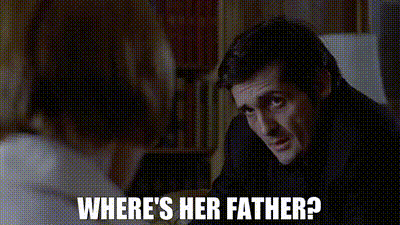all those murders you done.
Saturday, 23 August 2025
Transported for Life to The Colonies
all those murders you done.
Thursday, 7 March 2024
VHS-Summer School Lesson 1 : Cujo — Good Dog, Lie Down.

Mr Gary Grooberson :
whatever I want.
Good Morning Class!
Monday, 13 June 2022
Red
"Yes... By The Green Beam of My Ring -- I see that You are Honest!
So now you pass both tests, Hal Jordan...."
"Half the things I saw on the beat
Friday, 22 April 2022
lloigor
Yeah. The Enhanced. Strucker's prize pupils.
[picks up a dish of candies from his desk]
Want A Candy?
Oh, sorry to hear about Strucker.
But then, he knew what kind of World he was helping create.
Human Life, not a growth market.
[The Twins look at each other]
You...you didn't know?
Is this your first time intimidating someone?
I'm afraid that I'm not that afraid.
Wanda Maximoff:
Everybody's afraid of something.
Ulysses Klaue:
(Immediately)
Cuttlefish.
Deep sea fish.
They make Lights. Disco Lights.
Whoom, whoom, whoom!
To hypnotize their prey, then whoom!
I saw A Documentary, it was terrifying.
[Pietro speeds over to pick up a candy from Klaue's desk, and Klaue jerks at the sudden movement]
So if you're going to fiddle with My Brain,
and make me see a giant cuttlefish,
then I know you don't do Business,
and I know you're not in charge,
and I only deal with The Man in Charge.

Hans Stefan Santesson points out the basic similarity of Mayan and Egyptian investiture rituals, as previously indicated in Colonel Churchward's insightful but wrongheaded books on the lost continent of Mu. As we have demonstrated, Churchward's obsession with the Pacific, based on his having received his first clues about our lost ancestors in an Asiatic temple, led him to attribute to the fictitious Mu much of the real history of the actual Atlantis. But this passage from Santesson's Understanding Mu (Paperback Library, New York, 1970, page 117) needs little correction :
“Next he was taken to The Throne of Regeneration of the Soul, and the Ceremony of Investiture or Illumination took place. Then he experienced further ordeals before attaining to The Chamber of the Orient, to The Throne of Ra, to become truly A Master.
He could see for himself in the distance the uncreated light from which was pointed out the whole happiness of the future ... In other words, as Churchward puts it, both in Egypt and in Maya the initiate had to "sustain" (i.e., survive) "the fiery ordeal" to be approved as an adept. The adept had to become justified. The justified must then become illuminate
The destruction of Mu was commemorated by the possibly symbolic House of Fire of the Quiche Mayas and by the relatively later Chamber of Central Fire of the Mysteries which we are told were celebrated in the Great Pyramid.”
Substituting Atlantis for Mu, Churchward and Santesson are basically correct. The god, of course, could choose the shape in which He would appear in the final ordeal, and, since these gods, or lloigor in the Atlantean language, possessed Telepathy, they would read The Initiate's mind and manifest in the form most terrifying to the specific individual, although the shog-goth form and the classic Angry Giant form such as appears in Aztec statues of Tlaloc were most common. To employ an amusing conceit, if these beings had survived to our time, as some occultists claim, they would appear to the average American as, say, King Kong or, perhaps, Dracula or the Wolf-Man.
The sacrifices demanded by these creatures evidently contributed significantly to the fall of Atlantis, and we can conjecture that the mass burnings practised by the Celts at Beltain and even the Aztec religion, which turned their altars into abbatoirs, were minor in comparison, being merely the result of persistent tradition after the real menace of the lloigor had vanished.
We, of course, cannot fully understand the purpose of these bloody rituals, since we cannot fathom the nature, or even the sort of matter or energy, that comprised the lloigor. That the chief of these beings, is known in the Pnakotic Manuscripts and the Eltdown Shards as lok-Sotot, "Eater of Souls," suggests that it was some energy or psychic vibration of the dying victim that the lloigor needed; the physical body was, as in the case of the corpse-eating cult of Leng, consumed by the priests themselves, or merely thrown away, as among the Thuggee of India.
